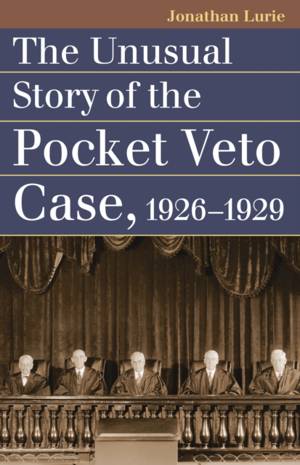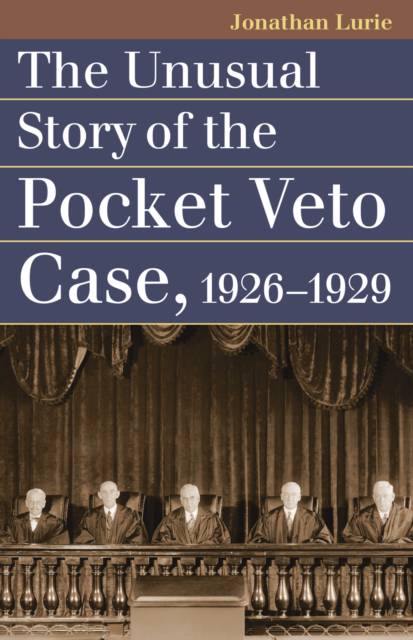
Vous voulez être sûr que vos cadeaux seront sous le sapin de Noël à temps? Nos magasins vous accueillent à bras ouverts. La plupart de nos magasins sont ouverts également les dimanches, vous pouvez vérifier les heures d'ouvertures sur notre site.
- Retrait gratuit dans votre magasin Club
- 7.000.000 titres dans notre catalogue
- Payer en toute sécurité
- Toujours un magasin près de chez vous
Vous voulez être sûr que vos cadeaux seront sous le sapin de Noël à temps? Nos magasins vous accueillent à bras ouverts. La plupart de nos magasins sont ouverts également les dimanches, vous pouvez vérifier les heures d'ouvertures sur notre site.
- Retrait gratuit dans votre magasin Club
- 7.000.0000 titres dans notre catalogue
- Payer en toute sécurité
- Toujours un magasin près de chez vous
Description
According to the US Constitution, if a bill is not returned to Congress by the president within ten days of receiving it and Congress has adjourned, the bill is effectively vetoed. The so-called pocket veto dates at least as far back as the presidency of James Madison (1808-1816), but the constitutionality of its use had not been considered by the Supreme Court until Okanogan et al. v. United States was decided in 1929, during the last year of Chief Justice Taft's tenure. Despite responding to a situation in American Indian law, the Pocket Veto Case is notable for the fact that its final decision had nothing whatsoever to do with Indian law. The Okanogan Tribe is barely mentioned at all in the Court's unanimous opinion, delivered by Justice Edward Sanford, which ultimately concluded that the pocket veto is a constitutional exercise of presidential authority. The Unusual Story of the Pocket Veto Case explores the underlying tension between congressional authority and the executive prerogative. Especially today, with such tension very much in evidence, it becomes all the more important to understand how and why the Constitution actually appears to encourage it. Studying Okanogan et al. v. United States and use of the pocket veto provides an excellent example of the tension between Congress and the president.
Spécifications
Parties prenantes
- Auteur(s) :
- Editeur:
Contenu
- Nombre de pages :
- 192
- Langue:
- Anglais
- Collection :
Caractéristiques
- EAN:
- 9780700633395
- Date de parution :
- 30-06-22
- Format:
- Livre broché
- Format numérique:
- Trade paperback (VS)
- Dimensions :
- 140 mm x 216 mm
- Poids :
- 249 g







